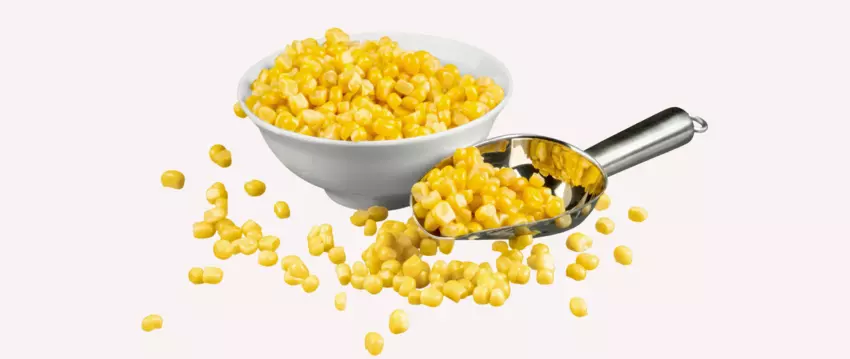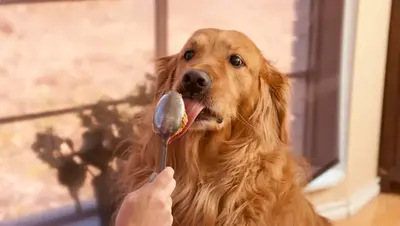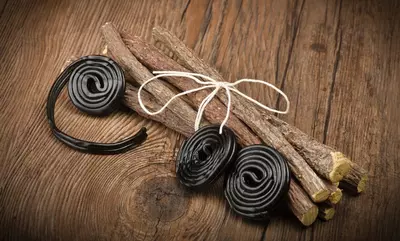Can Dogs Eat Sweetcorn?
- 12 Sep 2023
- 5m read

When it comes to feeding our four-legged friends, we all want to ensure that they're getting the best nutrition possible. But what about sweetcorn? Can dogs eat sweetcorn, and is it a safe and nutritious option for your furry companion? In this article, we'll explore the ins and outs of sweetcorn for dogs and answer some common questions.
Is Sweetcorn Good for Dogs?
While sweetcorn is not a staple in a dog's diet, when served in moderation and in the right form, it can offer some benefits to your furry friend. Here are a few potential benefits of sweetcorn for dogs:
Source of dietary fibre
Sweetcorn contains dietary fibre, which can aid in digestion and help regulate bowel movements. This can be particularly beneficial for dogs with occasional digestive issues.
Hydration
Frozen sweetcorn, when offered as an occasional treat, can be a source of hydration, especially on hot days. It provides a refreshing, icy crunch that can help keep your dog cool and hydrated.
Nutrient content
Sweetcorn contains essential nutrients such as vitamins and minerals, including vitamin B6, folate, and potassium. While these nutrients should primarily come from your dog's regular dog food, the occasional addition of sweetcorn can contribute to a more diverse diet.
Texture and enrichment
The crunch and texture of sweetcorn can be an enjoyable addition to your dog's diet. It can also serve as a source of mental enrichment when given as a treat or used in puzzle toys.
Low in fat
Sweetcorrn is relatively low in fat, making it a suitable treat for dogs who need to watch their weight.
Can Dogs Eat Frozen Sweetcorn?
Frozen sweetcorn is a convenient and often delicious addition to many human meals. But is it safe for dogs to enjoy as well? The short answer is yes, dogs can eat frozen sweetcorn. but with some important considerations.
Before serving your pup some frozen sweetcorn, it's essential to ensure it's plain, without any added seasonings, sauces, or butter. Dogs should only consume plain, unseasoned sweetcorn.
The texture of frozen sweetcorn can be a fun and satisfying treat for your dog. It can also be a source of hydration, especially on hot days when they enjoy a cold, icy nibble. Just be cautious with the quantity. While sweetcorn itself is not toxic to dogs, it should be given in moderation. A few bites as an occasional treat are fine, but it should not replace your dog's regular, balanced diet.
Can Dogs Eat Tinned Sweetcorn?
We would not recommend giving your dog tinned sweetcorn.
The primary concern with canned sweetcorn is the added ingredients, such as salt and potentially harmful preservatives.
Excessive salt consumption can be harmful to dogs, leading to various health issues, including dehydration and electrolyte imbalances. Some canned sweetcorn products may also include sugars, which are not suitable for dogs either.
Opt for frozen or fresh sweetcorn instead, as they are safer options without the unnecessary additives.
How Much Sweetcorn Can I Give My Dog?
When sharing sweetcorn with your dog, it's vital to consider portion sizes. While sweetcorn is not toxic to dogs, overindulging can lead to gastrointestinal upset and potential digestive issues. Here are some guidelines to follow when offering sweetcorn as an occasional treat:
Size
For small dog breeds, a couple of kernels is more than enough. Medium to large dogs can enjoy a few more kernels, but moderation is key.
Fresh or frozen
Stick to fresh or frozen sweetcorn without any added seasonings, sauces, or butter. This ensures your dog receives the purest form of this vegetable.
Monitor your dog
Pay attention to your dog's reaction to sweetcorn. Some dogs may have allergies or sensitivities to certain foods, so it's essential to watch for any adverse reactions.
Balanced diet
Sweetcorn should only be a small part of your dog's diet. Ensure that it doesn't replace their regular, nutritionally balanced dog food.
What Should I Do If My Dog Eats a Corn Cob?
Accidents can happen, and dogs are known for their curious and opportunistic eating habits. If you suspect that your dog has ingested a corn cob, here's what you should do:
Stay calm
While it's natural to be concerned, staying calm is essential. Panicking won't help the situation.
Don't induce vomiting
Unlike some other foreign objects, inducing vomiting may not be safe for a corn cob. It could become lodged in the throat or cause other complications.
Contact your vet
Call your veterinarian immediately. They can provide guidance on whether your dog needs medical attention based on their size and the amount of corn cob ingested.
Watch for symptoms
Keep a close eye on your dog for any signs of distress, such as vomiting, diarrhoea, lethargy, or difficulty breathing. These could be indications of an obstruction or other issues.
Prevention is always the best approach. To avoid such situations, make sure to dispose of corn cobs securely, so your dog can't access them. If you're concerned about your dog's dietary habits or have any questions about their nutrition, your veterinarian is the best resource for guidance.

.webp)


